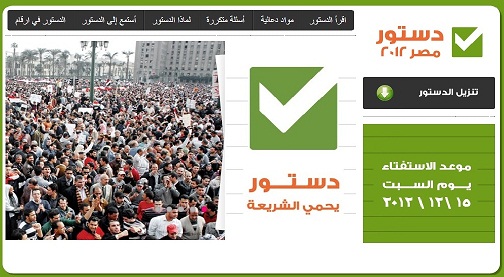
(AFP PHOTO / MAHMOUD KHALED)
The international Committee to Protect Journalists (CPJ) is hoping to further push forward the cause of journalists in Egypt through constant communication with the country’s senior officials.
In a letter addressing President Abdel Fattah Al-Sisi on 9 March, CPJ wrote that there was a “concern about the climate for press freedom in Egypt,” urging follow up meetings to carry on what has been discussed with several high-level officials.
“We ask that you ensure that journalists are not in prison for doing their work, regardless of whether they are members of the journalists’ syndicate,” CPJ stated addressing the presidency.
The meetings, which occurred in February, included the following officials: Prosecutor General Hisham Barakat, Minister of Transitional Justice Ibrahim El-Heneidi, Deputy Minister of Interior for Human Rights Abu Bakr Abdel Karim, and Deputy Minister of Justice for Human Rights Affairs Medhat Bassiouni.
CPJ expressed optimism about the prosecutor general’s promise to allow them to visit journalists in prison, as well as Abdel Karim’s reported statement: “The mission is in the interest of everyone.”
On the other hand, CPJ expressed concern over security’s handling of journalists. According to CPJ’s interview with press freedom advocates, “the threats emanate from security forces, police, and a public increasingly hostile toward journalists.”
Therefore, CPJ criticised some of the officials’ argument defending the situation in Egypt, such as claims that journalists are on trial for criminal charges not publishing crimes, and that the judicial body’s decisions cannot be discussed.
CPJ also referred to an invitation by El-Heneidi to international journalists to work in Egypt. CPJ said that El-Heneidi “did not seem to grasp why international correspondents are deterred from reporting in Egypt, telling us thousands were registered, so a few arrests were not indicative of the actual situation.”
What CPJ worries mostly about is security practices against journalists such as pre-trial detention, anti-terrorism laws, and the Protest Law, as well as increasing efforts to censor the Internet.
CPJ hopes to be able to follow up directly with the presidential office with a formal request for a meeting with their board of directors and senior staff members, adding that they will reach out to the new parliament as well.
Ten journalists are featured on CPJ’s list of journalists in prison. The names included three reporters from Rassd: Mahmoud Abdel Nabi, Samhi Mustafa and Abdullah Al-Fakharny, all three arrested between July and August 2013.
CPJ also stated the case of photojournalists Mahmoud Abou Zeid, known as Shawkan, who has been detained since August 2013, and Ahmed Gamal Ziada who was arrested in December 2013.
Besides Al Jazeera journalists Peter Greste, Mohamed Fahmy and Baher Mohamed, CPJ also named Mohamed Al-Adly, Ahmed Fouad, Abdel Rahman Shaheen and Ayman Saqr whose arrests were between August 2013 and November 2014.

